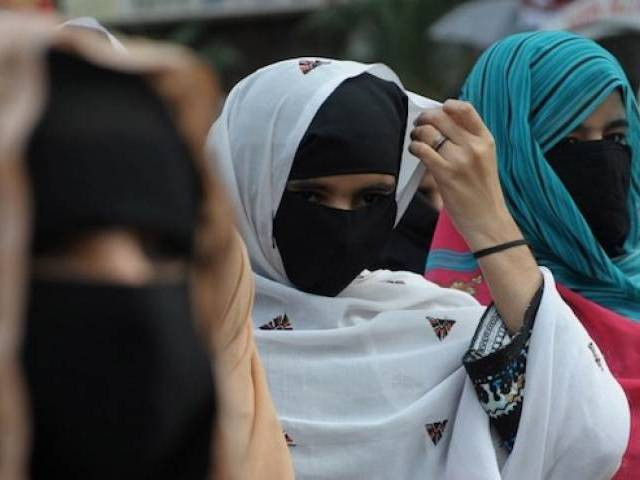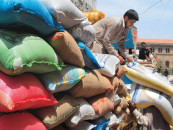The feminist collective: ‘We may call it feminism or something else’
Discussion on feminism, issues pertinent to women organised

PHOTO: AFP
Suhail made the remarks at a discussion on feminism and issues pertinent to women. She said any women being oppressed was aware of it and any means she used to defy it constituted resistance. Whatever ideological lens one placed on the resistance, Suhail said, originated from one individual understanding of it. “So we may call it feminism or something else,” she said. Suhail said women in the Indian subcontinent had a history of standing up for themselves.
She said women often felt out of place in public spaces. “We feel as if we have done something wrong by being here so we hunch over and try to make ourselves seem smaller,” Suhail said. She said reservations were a welcome thing in this context as they helped women come out.
Sonia Qadir of the Feminist Collective spoke about making the collective broader in terms of class representation. Those present agreed with her saying that such initiatives were often the exclusive preserve of women with affluent backgrounds who dressed and spoke in a particular way. They said this deterred other women wishing to join. Qadir said the collective had been looking into ways of overcoming the challenges.
She said they wanted to maintain a distance from the “victim-survivor” narrative. “Often, when we speak to women residing in rural areas or of lesser means they want to start a conversation from somewhere else while we want to commence it from somewhere else,” Qadir said. She said how to go around interacting with a broader set of women without making victims out of them was a pressing question for them. Replying to some men in the audience who felt it was necessary to struggle at a broader human level to combat issues like poverty, Suhail said that gender inequality was prevalent even in developed countries where poverty was not a pressing problem.
Ayesha Nadir Ali of Sangat conducted the second session of the evening. Ali spoke about women in Punjabi poetry. She said the line between the East and the West was arbitrary when it came to women. Ali said this was a manmade distinction as all humans came from the same landmass. She posited this in context of the fact that Europe and Asia were connected. Historically, Ali said, humans originated from one place and had carried some remnant of this. She said oppressing women constituted a part of this.
Citing the example of Heer, Ali said, Waris Shah had portrayed her as someone vocal about her opinions rather than depicting her as a victim. She said even her sister-in-law sided with her in Shah’s poetry. Ali said Heer’s story was also a comment against then prevalent customs where women were treated like commodities. She said Heer’s story had existed long before Shah had penned it. “Such stories come from people’s experiences,” Ali said.
The event was organised by the Society for Cultural Education (SCE) in collaboration with the Trust for History, Art and Architecture Pakistan (THAAP).
Published in The Express Tribune, March 13th, 2016.



















COMMENTS
Comments are moderated and generally will be posted if they are on-topic and not abusive.
For more information, please see our Comments FAQ